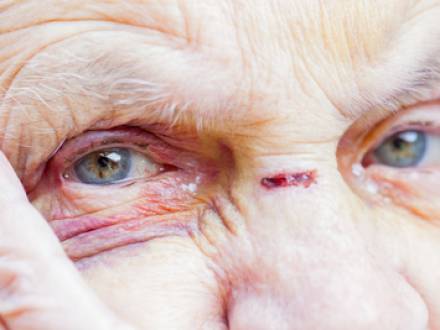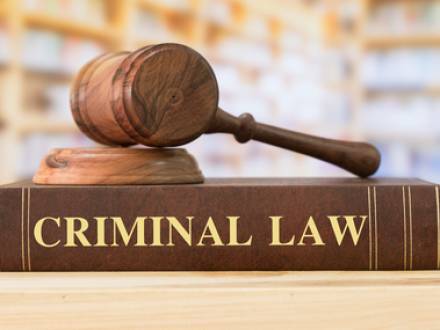
FREE CONSULTATIONS
8585-ADVICE
Recent Blog Posts
Are Geofence Warrants Legal in Maryland Criminal Cases?
 A shift is quietly taking place in Maryland law enforcement as detectives increasingly turn to geofence warrants, which are broad digital sweeps that compel tech companies like Google to identify the owner of each electronic device near a crime scene. As you might imagine, a geofence warrant can pull in dozens of innocent people who happened to be in the wrong place at the wrong time.
A shift is quietly taking place in Maryland law enforcement as detectives increasingly turn to geofence warrants, which are broad digital sweeps that compel tech companies like Google to identify the owner of each electronic device near a crime scene. As you might imagine, a geofence warrant can pull in dozens of innocent people who happened to be in the wrong place at the wrong time.
Imagine jogging past an apartment complex early in the morning, or waiting at a bus stop, completely unaware that your phone has just been identified as being within a specific radius of a criminal offense. As with many technological advances, the law has not kept pace with geofence warrants. Courts in Maryland have yet to create a "rulebook" governing these warrants, which has created challenges.
Attorneys in the state are questioning whether these warrants violate Article 26 of the Maryland Constitution, as they reflect the "general" warrants the Founders fought to eliminate. In short, geofence warrants have the potential to constitute government overreach and sweep up innocent people. If you are facing police questioning under a geofence warrant, the sooner you speak to an experienced criminal defense attorney in Northern Baltimore County, MD, the better outcome you are likely to have.
Understanding Maryland’s Harsh "Drug Kingpin" Laws
 Many of us may have heard the term "drug kingpin" on a television show or movie. Far fewer are aware that there are specific Maryland drug kingpin laws (Criminal Law Article Section 5-613 and 5-612) that target individuals who allegedly supervise, manage, or finance large-scale drug operations.
Many of us may have heard the term "drug kingpin" on a television show or movie. Far fewer are aware that there are specific Maryland drug kingpin laws (Criminal Law Article Section 5-613 and 5-612) that target individuals who allegedly supervise, manage, or finance large-scale drug operations.
These drug kingpin laws do not require the accused to physically handle drugs; rather, they focus on organization, leadership, and control within a drug trafficking enterprise. Unlike ordinary possession or distribution charges, kingpin allegations target anyone the state believes is controlling a drug-trafficking network. If proven, this leadership can trigger mandatory minimum sentences of 20 years in prison without parole.
If you are facing drug kingpin charges, it is essential that you understand how the state defines a "kingpin," how prosecutors build these cases, and what defenses exist that can take the "kingpin" label off the table. A highly knowledgeable Harford, MD criminal defense lawyer can thoroughly evaluate the charges and evidence against you, then work hard for the best outcome possible.
Maryland’s Enhanced Penalties for Elder Abuse and Assault
 Facing assault charges in Maryland is serious enough, but if the alleged victim is considered elderly or "vulnerable," the stakes rise significantly. Maryland Criminal Law Sections 3-604 and 3-605 allow prosecutors in the state to seek enhanced penalties for assault when the victim is elderly, disabled, or dependent on the accused for his or her care. The term "vulnerable" is not always as clear-cut as it might seem.
Facing assault charges in Maryland is serious enough, but if the alleged victim is considered elderly or "vulnerable," the stakes rise significantly. Maryland Criminal Law Sections 3-604 and 3-605 allow prosecutors in the state to seek enhanced penalties for assault when the victim is elderly, disabled, or dependent on the accused for his or her care. The term "vulnerable" is not always as clear-cut as it might seem.
Age alone does not necessarily qualify a person as vulnerable; therefore, the state must prove the existence of specific physical, mental, or situational factors. If you are facing enhanced assault penalties because your alleged victim has been deemed "vulnerable," it is extremely important that you consult with a Northern Baltimore County, MD criminal defense lawyer who will fight for your rights and your future.
What Makes Repeated Behaviors Rise to the Level of Stalking?
 Maryland’s stalking statute is unusually broad, often intersecting with related crimes like electronic surveillance, harassment, and violations of protective orders. Stalking is treated as a serious criminal offense in Maryland – one that can result in jail time and lasting damage to your reputation and record.
Maryland’s stalking statute is unusually broad, often intersecting with related crimes like electronic surveillance, harassment, and violations of protective orders. Stalking is treated as a serious criminal offense in Maryland – one that can result in jail time and lasting damage to your reputation and record.
However, the law also recognizes that in today’s world of digital communication, misunderstandings, normal relationship conflicts, or unwanted digital contact do not always rise to the level of criminal behavior. Under Maryland Law (Section 3-802), stalking involves an intentional, repeated course of conduct that causes another person to fear serious bodily injury, sexual assault, or death.
This means that the difference between a felony-level offense and a lawful encounter can turn on intent and context. This makes it crucial to understand how the courts interpret "fear" and "repeated course of conduct." Having a highly skilled Harford, MD criminal defense attorney gives you the best chance for a positive outcome.
When Armed Robbery and Kidnapping Collide in Maryland
 Montgomery County Police are searching for two suspects wanted in connection with an armed robbery, kidnapping, and homicide that occurred on September 21 in North Bethesda. A third suspect is in custody and is being held without bond. What likely began as an armed robbery quickly escalated into a homicide, then the kidnapping of two individuals. While the homicide charge is the most serious, the armed robbery (Maryland Code Criminal Law Section 3-403) and kidnapping charges also carry extremely severe penalties in Maryland.
Montgomery County Police are searching for two suspects wanted in connection with an armed robbery, kidnapping, and homicide that occurred on September 21 in North Bethesda. A third suspect is in custody and is being held without bond. What likely began as an armed robbery quickly escalated into a homicide, then the kidnapping of two individuals. While the homicide charge is the most serious, the armed robbery (Maryland Code Criminal Law Section 3-403) and kidnapping charges also carry extremely severe penalties in Maryland.
Armed robbery is among the most serious charges under Maryland law, but when the situation involves restraining, moving, or detaining a victim, a second charge of kidnapping can follow. The combination of these two charges dramatically increases the stakes for the accused. If you are being charged with either armed robbery or kidnapping – or both – speaking to an experienced Northern Baltimore County, MD criminal defense attorney as soon as possible is crucial.
How Reliable is Gunshot Residue Testing in Maryland Courts?
 Although gunshot residue (GSR) evidence is often used in court by prosecutors to convince a jury of an individual’s guilt, the reliability of GSR evidence has been repeatedly questioned. The reliability of GSR is under near-constant siege and is used to indicate exposure to a fired gun. Although particle characteristics of lead, barium, and antimony are considered almost irrefutable evidence by jurors, the presence of these elements can conceivably come from other sources.
Although gunshot residue (GSR) evidence is often used in court by prosecutors to convince a jury of an individual’s guilt, the reliability of GSR evidence has been repeatedly questioned. The reliability of GSR is under near-constant siege and is used to indicate exposure to a fired gun. Although particle characteristics of lead, barium, and antimony are considered almost irrefutable evidence by jurors, the presence of these elements can conceivably come from other sources.
GSR is easily transferred, can be removed by washing, is degraded by normal activities, and does not rule out firing a weapon. Because of this, GSR evidence should be viewed as corroborating evidence rather than standalone "proof." If you have been charged with a criminal offense that involves a firearm, consulting with a highly experienced Harford County, MD criminal defense lawyer is the best step you can take to protect your future.
Do Polygraphs in Maryland Sex Crimes Defense Help or Hurt?
 If you are facing false sex crime allegations in Maryland, you may understandably be desperate to prove your innocence. So, when a law enforcement officer suggests a polygraph test (also known as a "lie detector" test), you may jump at the chance. After all, you are innocent, so why not? Polygraphs are commonly shown in movies and television shows as a tool that definitively separates the truth from lies.
If you are facing false sex crime allegations in Maryland, you may understandably be desperate to prove your innocence. So, when a law enforcement officer suggests a polygraph test (also known as a "lie detector" test), you may jump at the chance. After all, you are innocent, so why not? Polygraphs are commonly shown in movies and television shows as a tool that definitively separates the truth from lies.
In real courtrooms, however, the story is far more complex. Could a polygraph test help your defense, or could it make things worse? You must understand the limitations of polygraph tests and consult with an experienced Northern Baltimore County, MD criminal defense lawyer who can explain the pros and cons.
How Do Polygraph Tests Work?
Polygraph tests measure involuntary physiological responses, including respiration, pulse rate, blood pressure, and skin conductivity, to determine whether an individual is being truthful or deceptive. Sensors are attached to the body to record changes that are believed to be more intense when the individual is being dishonest. The process begins with an interview, during which the examiner explains the test, reviews the questions to be asked, and provides the individual with instructions.
When Hearsay Is Allowed: Exceptions in Maryland Trials
 Anyone who watches crime television shows or movies has probably heard the term "hearsay." In a criminal trial, hearsay is typically used in the context of a lawyer objecting to a witness repeating something he or she did not see or hear firsthand. Hearsay is usually considered inadmissible because it cannot be regarded as reliable evidence.
Anyone who watches crime television shows or movies has probably heard the term "hearsay." In a criminal trial, hearsay is typically used in the context of a lawyer objecting to a witness repeating something he or she did not see or hear firsthand. Hearsay is usually considered inadmissible because it cannot be regarded as reliable evidence.
However, like most rules of evidence, there are exceptions. Under certain circumstances, hearsay can be admitted and may even play a significant role in the outcome of a case. If you are facing criminal charges, it can be helpful to understand when hearsay is allowed. Having a highly experienced Northern Baltimore County, MD criminal defense lawyer can help ensure that your rights are protected and that you achieve the best possible outcome.
What is Hearsay?
Maryland Rules of Evidence 5-801, regarding hearsay, was updated in 2020, under HB 449. Rule 5-801 and 802 define hearsay as an "out-of-court statement" offered to prove the truth of the matter asserted; however, the statement was made by someone who is not testifying. These statements are usually prohibited because the original speaker cannot be cross-examined, and the veracity of the statement cannot be challenged. Courts prohibit hearsay to ensure reliability and due process during a trial. Prohibiting hearsay ensures that:
Can You Be Charged for Deleted Child Pornography Files?
 Possession of child pornography in the state of Maryland is a serious felony. But what if the files in question were deleted? Perhaps they were yours, or maybe someone else using your computer downloaded the files. In either case, you may believe that erasing the content from your computer also erases any future criminal liability, but this is not always true.
Possession of child pornography in the state of Maryland is a serious felony. But what if the files in question were deleted? Perhaps they were yours, or maybe someone else using your computer downloaded the files. In either case, you may believe that erasing the content from your computer also erases any future criminal liability, but this is not always true.
With today’s high-tech forensics, law enforcement can often recover deleted files or trace remnants of illegal content, even if you believed they were inaccessible. It is important that you consult with a knowledgeable Harford County, MD, criminal defense lawyer who can explain the charges and the defenses that may be available in your case. Sex crimes cases, especially those involving electronics, can be extremely complex, and the stakes could not be higher.
The Day After DUI: Can You Be Charged with DUI the Next Day?
 Most of us think of a DUI arrest as being pulled over while driving, given sobriety tests, and arrested for driving under the influence. In the state of Maryland, however, you can face DUI charges without an actual traffic stop. This could be the result of a delayed investigation, a "concerned" witness, or a crash report, but the police could potentially pursue DUI charges after the fact, even the next day.
Most of us think of a DUI arrest as being pulled over while driving, given sobriety tests, and arrested for driving under the influence. In the state of Maryland, however, you can face DUI charges without an actual traffic stop. This could be the result of a delayed investigation, a "concerned" witness, or a crash report, but the police could potentially pursue DUI charges after the fact, even the next day.
This hardly seems legally possible, but if the prosecution can prove impairment without the benefit of a traffic stop, there is a very real possibility of being charged with DUI hours after you were actually driving. If you find yourself charged with DUI the next day, you are facing what is known as a "retroactive investigation." You need an experienced, aggressive Harford County, MD DUI lawyer to build a strong defense on your behalf.




 CALL US
CALL US TEXT US
TEXT US EMAIL US
EMAIL US
